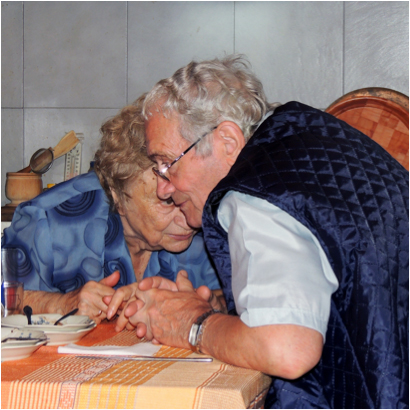
I well remember my grandma saying, “He’s good people.” According to my research, the earliest citation I found for this phrase is around 1881. While it isn’t standard grammar, and it sounds odd to most people, it makes some sense to me. Saying “he’s good people” is much the same as saying “he is family.”
I recently heard someone use the expression, which made me reminisce about my grandma and my Uncle Roy, a crusty old fellow with massive, gnarled hands, broad shoulders and thick eyeglasses that made him look like a college professor – until he opened his mouth! His language could best be described as salty. I think it might have had something to do with his patriotism. Uncle Roy was one of those rare fellows who volunteered to serve in the U.S. Navy in both WWI and WWII. He did his duty and did it honorably.
The Navy also taught him a trade; he was a bookbinder and printer. His strong, massive hands and shoulders were the result of years of practicing his trade. Back in those days, a person’s trade often defined their bodies.
A Trip to Buffalo
He was a tough and crusty man, it is true, but he had a good heart and one great love in his life. She was named Carrie, and he loved his wife with a great depth of passion. He met her very late in life. They did not have children. She was a kind and decent woman with a sparkling personality and a pleasant laugh. I know this better than most because I was one of the last people to see her truly laugh.
As with so many men and women of my youth, Roy loved the railroads and everything about them. One fine summer day, he and Aunt Carrie got permission from my mother to take me on a long train ride from Pittsburgh, PA to Buffalo, NY on the New York Central railroad. It was a good trip, and my aunt and uncle were happy and excited to have me along. One thing was clear to even my six-year-old mind: Uncle Roy and Aunt Carrie were deeply in love. They approached each other with kindness and consideration.
On that trip to the notable city of Buffalo, I stayed with my grandparents, and my aunt and uncle stayed with Carrie’s sister. We had been away for two or three days when my family started to speak in hushed tones. Uncle Roy came to my grandparent’s home and, in a quivering voice, said:
“At first, I thought she was dead.”
My aunt had collapsed on the floor the night before. She suffered a massive stroke. She would never be the same. The train ride back home was long and somber. The doctors were preparing Aunt Carrie for an air-ambulance ride back and entry into a rehab hospital. Uncle Roy was returning with me to make preparations. As always, my uncle was kind and decent toward me. As we were pulling into the train station, his hands shook. When we were met on the platform by my mother and another relative, he broke down.
Little Things Make a Big Difference
My uncle had another passion – one that you might expect. He loved the sea. He loved to fish. We would often go fishing together, either from the docks or in a very small cabin cruiser owned by one of his friends.
The ocean air brightened his spirits. He would talk about bookbinding, or about how when he was young, he would go fishing or crabbing or clamming with his brothers. He told me about the farms where his family could buy fresh produce or about ranks in the Navy. I would ask him about Aunt Carrie, of course. He was nursing her back to health. He was helping her to walk and talk. Indeed, he would always tell me how incredible her progress had been.
He told me about beautiful trains and locomotives he had recently seen, and about Western movies he wanted to take me to see. He was always genuinely thrilled to catch fresh fish. “Oh, your Aunt Carrie loves fresh fish,” he would say.
All these years later, aside from the fact that my uncle could never come out and tell me he loved me, the love was apparent and real. I dearly miss him.
Even when his heart was broken, even when a lesser person might have asked, “Why me, God?” He never lost the ability to find joy in the smallest things and to celebrate life and make a difference in the lives of others.
On this fine day that you have been given, though you might be carrying an unseen burden, please understand that it is in our simple acts of kindness where friends and strangers alike will say: “There goes a good person,” or, as my grandmother might say, “He’s good people.” Don’t be afraid to lighten your burden by helping someone else lighten his or hers. Never stop doing little things for others. Sometimes those little things occupy the biggest part of their hearts.
For more information about Hall of Fame speaker and bestselling author Steve Gilliland, please contact: steve@stevegilliland.com / 724-540-5019 / www.stevegilliland.com.